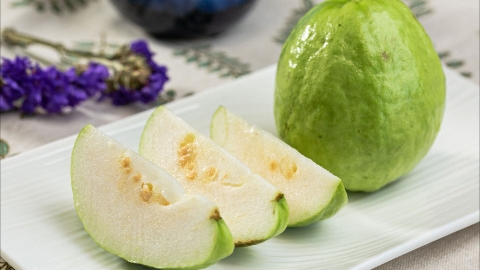What are the禁忌 (contraindications/precautions) of eating guava during pregnancy?
There are several precautions pregnant women should take when eating guava: avoid overconsumption, eating unwashed guava, consuming large amounts on an empty stomach, excessive intake by pregnant women with diabetes, and consumption by those with allergic constitutions. Properly observing these precautions helps ensure dietary safety during pregnancy. If abdominal pain, diarrhea, or allergic reactions occur after eating guava, prompt medical attention is recommended.
1. Avoid excessive consumption: Guava is rich in dietary fiber. Overeating may lead to bloating, diarrhea, and increased gastrointestinal burden. Since digestive function is relatively weaker during pregnancy, it is advisable to limit intake to 1–2 fruits per day.
2. Avoid eating unwashed guava: Pesticide residues, dust, or insect eggs may remain on the skin. Consuming unwashed guava can cause gastrointestinal infections, leading to vomiting or diarrhea, which may affect both maternal health and fetal development.

3. Avoid consuming large amounts on an empty stomach: Guava contains certain fruit acids that may irritate the gastric mucosa when consumed on an empty stomach, potentially causing acid reflux or stomach pain. Given the heightened gastric sensitivity during pregnancy, eating guava on an empty stomach should be avoided.
4. Pregnant women with diabetes should avoid excessive intake: Guava contains fructose. Excessive consumption by diabetic pregnant women may elevate blood glucose levels, making glycemic control more difficult. Intake should be carefully managed under medical guidance.
5. Pregnant women with allergic constitutions should avoid consumption: Some individuals are allergic to guava. Allergic reactions in pregnant women may include skin itching or rashes, and in severe cases, may affect the fetus. Such individuals should either avoid guava or try it cautiously.
Before eating guava, thoroughly wash it under running water; peeling may be necessary. Choose fruits with moderate ripeness and avoid unripe, astringent, or spoiled guavas. Consume guava as part of a balanced diet with other fruits, avoiding overreliance on any single food to ensure comprehensive nutrition during pregnancy.




